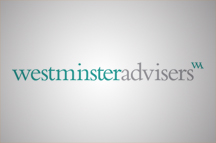After months of dither, negotiations, excuses and concessions the TV debate which many thought would never happen has finally arrived.
Despite low expectations about the benefits of a debate involving seven party leaders with the possible ‘winner’ being somebody that the majority of the electorate can’t even vote for; there is still a chance that tonight’s debate could alter the dynamics of the campaign.
So what should you watch out for, and what will be the implications?
1. A good performance could see a poll boost, but will it last?
It seems difficult to imagine now, but Nick Clegg’s performance in the first television debate during the 2010 General Election saw the Liberal Democrats’ poll ratings increase from around 18-20% before the first debate to a high of 34% in the days after. Nick Clegg was rivalling Churchill in the popularity stakes and his party were in the lead, ahead of the Conservatives on voting intention. In the end the party ended up on 23.6%: in a distant third place with a reduced number of MPs.
So while the days after the debate could see significant changes in the polling picture, there is still time for things to change, and the impact that one debate will have on long term trends shouldn’t be over-estimated.
2. Most voters don’t follow the daily developments of the Westminster ‘bubble’
There is a tendency for politicians, the media and those working in Westminster to assume that everybody else is as interested in, and exposed to, politics and the General Election as they are. Many voters just don’t follow the intricate details of Westminster process stories as much as political obsessives imagine.
Prime time TV events such as this will see significantly more people engaged than usual and will potentially fire the starting gun on an election which still seems to be limping into life.
3. Many debates within one
The increasingly fragmented nature of British politics, and the size of the debate, mean that as well as the main debate there will be plenty of ‘mini-debates’ taking place which it will be worth keeping an eye on:
• David Cameron vs Ed Miliband positioning themselves as the only two possible contenders for Prime Minister and focussing on economic competency and the ‘fairness’ of the recovery respectively;
• Nicola Sturgeon, Natalie Bennett and Leanne Wood attacking Ed Miliband from the left;
• Nigel Farage challenging David Cameron (and to a lesser extent Ed Miliband and Nick Clegg) over the what he will argue is a ‘Westminster consensus’ on immigration and Europe;
• Nick Clegg defining his party as being a moderating influence on both the Conservatives and Labour, differentiating himself from David Cameron and demonstrating that the Lib Dems are a mature party of Government
These individual dynamics will be interesting to observe with each leader trying to define themselves against somebody else.
4. Will exposure boost the minor parties?
Recent opinion polls have shown a growing trend of support for smaller parties diminishing as Labour and the Conservatives strengthen their combined positions. YouGov’s recent polls have shown that the two largest parties have a combined share of the vote of 70% while in January 2015 this was around 65%.
The danger for Cameron and Miliband is that giving these smaller parties a platform will reverse this trend and see their vote share increase again.
5. Coalition partners: insurgency vs stability
Nick Clegg has perhaps both the most to lose and the most to gain from participating in this debate. Clegg famously broke onto the political scene for many watching by telling the audience in 2010 that the choice wasn’t just between the “two old parties that have been playing pass the parcel with your government for 65 years”.
This time around the presence of three leaders positioning themselves as ‘insurgents’ combined with his party’s involvement in Government over the last five years takes away Clegg’s chance to play this card. Instead Clegg will be looking to show the contrast between a Liberal Democrat party who- he will argue- have acted in the national interest by taking difficult decisions, and parties such as the SNP, Greens, Plaid Cymru and UKIP who he will argue will cause ‘chaos’. Whether this resonates with an electorate increasingly attracted to minor parties will have to be seen.
Interestingly, Nigel Farage may also find it more difficult to position himself as the outsider against the alliance of three female left-wing leaders who many viewers will be seeing for the first time.
6. I agree with Nicola, not Nick…
Regardless of what long term effect tonight’s debate will have, it seems unlikely that the other party leaders will be saying how much they agree with Nick, and much more likely that we’ll have an “I agree with Nicola”.












